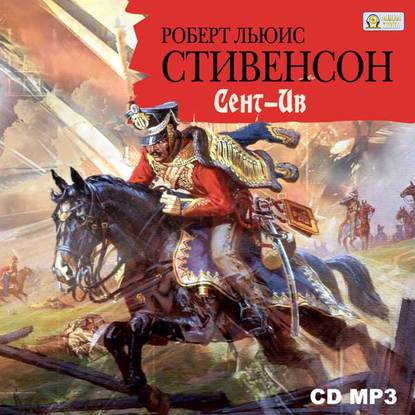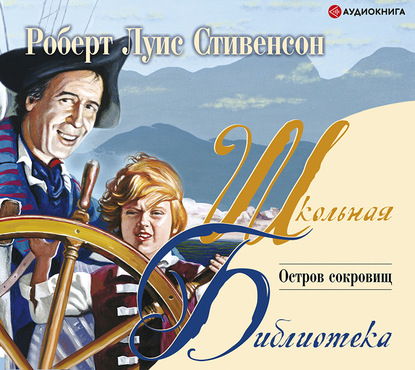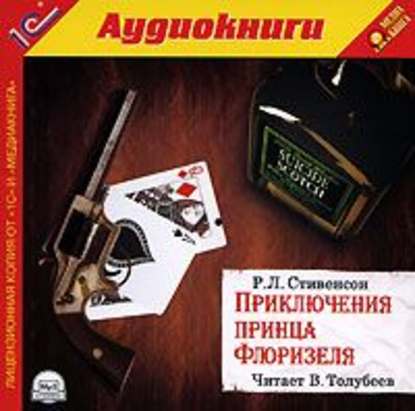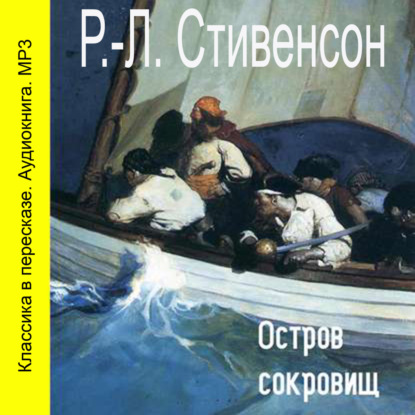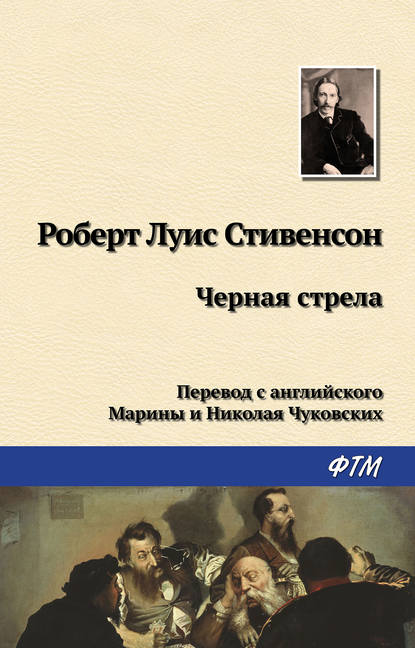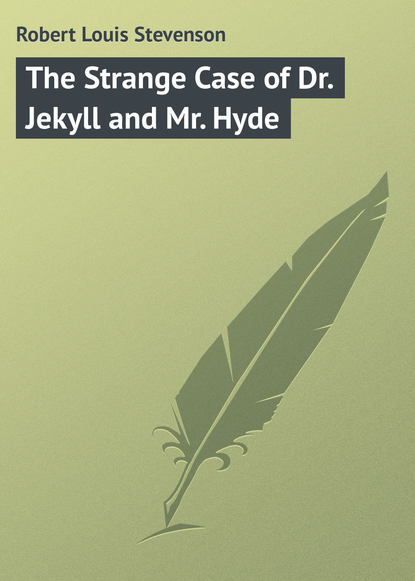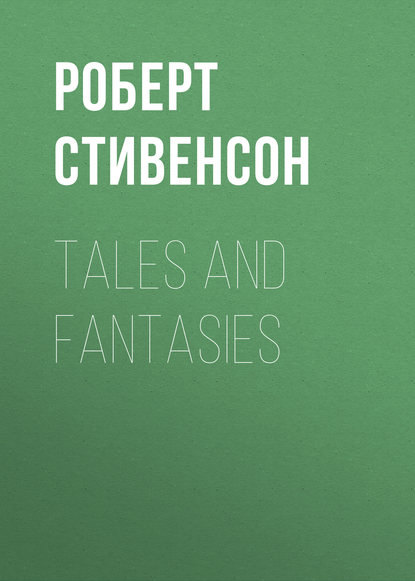
Полная версия
Tales and Fantasies
He paused at that, for he saw his father wince at the picture like a man physically struck; and again there was silence.
‘I do not think,’ said Mr. Nicholson, at last, ‘that I am an ungenerous father. I have never grudged you money within reason, for any avowable purpose; you had just to come to me and speak. And now I find that you have forgotten all decency and all natural feeling, and actually pawned – pawned – your mother’s watch. You must have had some temptation; I will do you the justice to suppose it was a strong one. What did you want with this money?’
‘I would rather not tell you, sir,’ said John. ‘It will only make you angry.’
‘I will not be fenced with,’ cried his father. ‘There must be an end of disingenuous answers. What did you want with this money?’
‘To lend it to Houston, sir,’ says John.
‘I thought I had forbidden you to speak to that young man?’ asked the father.
‘Yes, sir,’ said John; ‘but I only met him.’
‘Where?’ came the deadly question.
And ‘In a billiard-room’ was the damning answer. Thus, had John’s single departure from the truth brought instant punishment. For no other purpose but to see Alan would he have entered a billiard-room; but he had desired to palliate the fact of his disobedience, and now it appeared that he frequented these disreputable haunts upon his own account.
Once more Mr. Nicholson digested the vile tidings in silence, and when John stole a glance at his father’s countenance, he was abashed to see the marks of suffering.
‘Well,’ said the old gentleman, at last, ‘I cannot pretend not to be simply bowed down. I rose this morning what the world calls a happy man – happy, at least, in a son of whom I thought I could be reasonably proud – ’
But it was beyond human nature to endure this longer, and John interrupted almost with a scream. ‘Oh, wheest!’ he cried, ‘that’s not all, that’s not the worst of it – it’s nothing! How could I tell you were proud of me? Oh! I wish, I wish that I had known; but you always said I was such a disgrace! And the dreadful thing is this: we were all taken up last night, and we have to pay Colette’s fine among the six, or we’ll be had up for evidence – shebeening it is. They made me swear to tell you; but for my part,’ he cried, bursting into tears, ‘I just wish that I was dead!’ And he fell on his knees before a chair and hid his face.
Whether his father spoke, or whether he remained long in the room or at once departed, are points lost to history. A horrid turmoil of mind and body; bursting sobs; broken, vanishing thoughts, now of indignation, now of remorse; broken elementary whiffs of consciousness, of the smell of the horse-hair on the chair bottom, of the jangling of church bells that now began to make day horrible throughout the confines of the city, of the hard floor that bruised his knees, of the taste of tears that found their way into his mouth: for a period of time, the duration of which I cannot guess, while I refuse to dwell longer on its agony, these were the whole of God’s world for John Nicholson.
When at last, as by the touching of a spring, he returned again to clearness of consciousness and even a measure of composure, the bells had but just done ringing, and the Sabbath silence was still marred by the patter of belated feet. By the clock above the fire, as well as by these more speaking signs, the service had not long begun; and the unhappy sinner, if his father had really gone to church, might count on near two hours of only comparative unhappiness. With his father, the superlative degree returned infallibly. He knew it by every shrinking fibre in his body, he knew it by the sudden dizzy whirling of his brain, at the mere thought of that calamity. An hour and a half, perhaps an hour and three-quarters, if the doctor was long-winded, and then would begin again that active agony from which, even in the dull ache of the present, he shrunk as from the bite of fire. He saw, in a vision, the family pew, the somnolent cushions, the Bibles, the psalm-books, Maria with her smelling-salts, his father sitting spectacled and critical; and at once he was struck with indignation, not unjustly. It was inhuman to go off to church, and leave a sinner in suspense, unpunished, unforgiven. And at the very touch of criticism, the paternal sanctity was lessened; yet the paternal terror only grew; and the two strands of feeling pushed him in the same direction.
And suddenly there came upon him a mad fear lest his father should have locked him in. The notion had no ground in sense; it was probably no more than a reminiscence of similar calamities in childhood, for his father’s room had always been the chamber of inquisition and the scene of punishment; but it stuck so rigorously in his mind that he must instantly approach the door and prove its untruth. As he went, he struck upon a drawer left open in the business table. It was the money-drawer, a measure of his father’s disarray: the money-drawer – perhaps a pointing providence! Who is to decide, when even divines differ between a providence and a temptation? or who, sitting calmly under his own vine, is to pass a judgment on the doings of a poor, hunted dog, slavishly afraid, slavishly rebellious, like John Nicholson on that particular Sunday? His hand was in the drawer, almost before his mind had conceived the hope; and rising to his new situation, he wrote, sitting in his father’s chair and using his father’s blotting-pad, his pitiful apology and farewell: —
‘My dear Father, – I have taken the money, but I will pay it back as soon as I am able. You will never hear of me again. I did not mean any harm by anything, so I hope you will try and forgive me. I wish you would say good-bye to Alexander and Maria, but not if you don’t want to. I could not wait to see you, really. Please try to forgive me. Your affectionate son,
John Nicholson.’The coins abstracted and the missive written, he could not be gone too soon from the scene of these transgressions; and remembering how his father had once returned from church, on some slight illness, in the middle of the second psalm, he durst not even make a packet of a change of clothes. Attired as he was, he slipped from the paternal doors, and found himself in the cool spring air, the thin spring sunshine, and the great Sabbath quiet of the city, which was now only pointed by the cawing of the rooks. There was not a soul in Randolph Crescent, nor a soul in Queensferry Street; in this outdoor privacy and the sense of escape, John took heart again; and with a pathetic sense of leave-taking, he even ventured up the lane and stood awhile, a strange peri at the gates of a quaint paradise, by the west end of St. George’s Church. They were singing within; and by a strange chance, the tune was ‘St. George’s, Edinburgh,’ which bears the name, and was first sung in the choir of that church. ‘Who is this King of Glory?’ went the voices from within; and, to John, this was like the end of all Christian observances, for he was now to be a wild man like Ishmael, and his life was to be cast in homeless places and with godless people.
It was thus, with no rising sense of the adventurous, but in mere desolation and despair, that he turned his back on his native city, and set out on foot for California, with a more immediate eye to Glasgow.
CHAPTER IV – THE SECOND SOWING
It is no part of mine to narrate the adventures of John Nicholson, which were many, but simply his more momentous misadventures, which were more than he desired, and, by human standards, more than he deserved; how he reached California, how he was rooked, and robbed, and beaten, and starved; how he was at last taken up by charitable folk, restored to some degree of self-complacency, and installed as a clerk in a bank in San Francisco, it would take too long to tell; nor in these episodes were there any marks of the peculiar Nicholsonic destiny, for they were just such matters as befell some thousands of other young adventurers in the same days and places. But once posted in the bank, he fell for a time into a high degree of good fortune, which, as it was only a longer way about to fresh disaster, it behooves me to explain.
It was his luck to meet a young man in what is technically called a ‘dive,’ and thanks to his monthly wages, to extricate this new acquaintance from a position of present disgrace and possible danger in the future. This young man was the nephew of one of the Nob Hill magnates, who run the San Francisco Stock Exchange, much as more humble adventurers, in the corner of some public park at home, may be seen to perform the simple artifice of pea and thimble: for their own profit, that is to say, and the discouragement of public gambling. It was thus in his power – and, as he was of grateful temper, it was among the things that he desired – to put John in the way of growing rich; and thus, without thought or industry, or so much as even understanding the game at which he played, but by simply buying and selling what he was told to buy and sell, that plaything of fortune was presently at the head of between eleven and twelve thousand pounds, or, as he reckoned it, of upward of sixty thousand dollars.
How he had come to deserve this wealth, any more than how he had formerly earned disgrace at home, was a problem beyond the reach of his philosophy. It was true that he had been industrious at the bank, but no more so than the cashier, who had seven small children and was visibly sinking in decline. Nor was the step which had determined his advance – a visit to a dive with a month’s wages in his pocket – an act of such transcendent virtue, or even wisdom, as to seem to merit the favour of the gods. From some sense of this, and of the dizzy see-saw – heaven-high, hell-deep – on which men sit clutching; or perhaps fearing that the sources of his fortune might be insidiously traced to some root in the field of petty cash; he stuck to his work, said not a word of his new circumstances, and kept his account with a bank in a different quarter of the town. The concealment, innocent as it seems, was the first step in the second tragicomedy of John’s existence.
Meanwhile, he had never written home. Whether from diffidence or shame, or a touch of anger, or mere procrastination, or because (as we have seen) he had no skill in literary arts, or because (as I am sometimes tempted to suppose) there is a law in human nature that prevents young men – not otherwise beasts – from the performance of this simple act of piety – months and years had gone by, and John had never written. The habit of not writing, indeed, was already fixed before he had begun to come into his fortune; and it was only the difficulty of breaking this long silence that withheld him from an instant restitution of the money he had stolen or (as he preferred to call it) borrowed. In vain he sat before paper, attending on inspiration; that heavenly nymph, beyond suggesting the words ‘my dear father,’ remained obstinately silent; and presently John would crumple up the sheet and decide, as soon as he had ‘a good chance,’ to carry the money home in person. And this delay, which is indefensible, was his second step into the snares of fortune.
Ten years had passed, and John was drawing near to thirty. He had kept the promise of his boyhood, and was now of a lusty frame, verging toward corpulence; good features, good eyes, a genial manner, a ready laugh, a long pair of sandy whiskers, a dash of an American accent, a close familiarity with the great American joke, and a certain likeness to a R-y-l P-rs-n-ge, who shall remain nameless for me, made up the man’s externals as he could be viewed in society. Inwardly, in spite of his gross body and highly masculine whiskers, he was more like a maiden lady than a man of twenty-nine.
It chanced one day, as he was strolling down Market Street on the eve of his fortnight’s holiday, that his eye was caught by certain railway bills, and in very idleness of mind he calculated that he might be home for Christmas if he started on the morrow. The fancy thrilled him with desire, and in one moment he decided he would go.
There was much to be done: his portmanteau to be packed, a credit to be got from the bank where he was a wealthy customer, and certain offices to be transacted for that other bank in which he was an humble clerk; and it chanced, in conformity with human nature, that out of all this business it was the last that came to be neglected. Night found him, not only equipped with money of his own, but once more (as on that former occasion) saddled with a considerable sum of other people’s.
Now it chanced there lived in the same boarding-house a fellow-clerk of his, an honest fellow, with what is called a weakness for drink – though it might, in this case, have been called a strength, for the victim had been drunk for weeks together without the briefest intermission. To this unfortunate John intrusted a letter with an inclosure of bonds, addressed to the bank manager. Even as he did so he thought he perceived a certain haziness of eye and speech in his trustee; but he was too hopeful to be stayed, silenced the voice of warning in his bosom, and with one and the same gesture committed the money to the clerk, and himself into the hands of destiny.
I dwell, even at the risk of tedium, on John’s minutest errors, his case being so perplexing to the moralist; but we have done with them now, the roll is closed, the reader has the worst of our poor hero, and I leave him to judge for himself whether he or John has been the less deserving. Henceforth we have to follow the spectacle of a man who was a mere whip-top for calamity; on whose unmerited misadventures not even the humourist can look without pity, and not even the philosopher without alarm.
That same night the clerk entered upon a bout of drunkenness so consistent as to surprise even his intimate acquaintance. He was speedily ejected from the boarding-house; deposited his portmanteau with a perfect stranger, who did not even catch his name; wandered he knew not where, and was at last hove-to, all standing, in a hospital at Sacramento. There, under the impenetrable alias of the number of his bed, the crapulous being lay for some more days unconscious of all things, and of one thing in particular: that the police were after him. Two months had come and gone before the convalescent in the Sacramento hospital was identified with Kirkman, the absconding San Francisco clerk; even then, there must elapse nearly a fortnight more till the perfect stranger could be hunted up, the portmanteau recovered, and John’s letter carried at length to its destination, the seal still unbroken, the inclosure still intact.
Meanwhile, John had gone upon his holidays without a word, which was irregular; and there had disappeared with him a certain sum of money, which was out of all bounds of palliation. But he was known to be careless, and believed to be honest; the manager besides had a regard for him; and little was said, although something was no doubt thought, until the fortnight was finally at an end, and the time had come for John to reappear. Then, indeed, the affair began to look black; and when inquiries were made, and the penniless clerk was found to have amassed thousands of dollars, and kept them secretly in a rival establishment, the stoutest of his friends abandoned him, the books were overhauled for traces of ancient and artful fraud, and though none were found, there still prevailed a general impression of loss. The telegraph was set in motion; and the correspondent of the bank in Edinburgh, for which place it was understood that John had armed himself with extensive credits, was warned to communicate with the police.
Now this correspondent was a friend of Mr. Nicholson’s; he was well acquainted with the tale of John’s calamitous disappearance from Edinburgh; and putting one thing with another, hasted with the first word of this scandal, not to the police, but to his friend. The old gentleman had long regarded his son as one dead; John’s place had been taken, the memory of his faults had already fallen to be one of those old aches, which awaken again indeed upon occasion, but which we can always vanquish by an effort of the will; and to have the long lost resuscitated in a fresh disgrace was doubly bitter.
‘Macewen,’ said the old man, ‘this must be hushed up, if possible. If I give you a cheek for this sum, about which they are certain, could you take it on yourself to let the matter rest?’
‘I will,’ said Macewen. ‘I will take the risk of it.’
‘You understand,’ resumed Mr. Nicholson, speaking precisely, but with ashen lips, ‘I do this for my family, not for that unhappy young man. If it should turn out that these suspicions are correct, and he has embezzled large sums, he must lie on his bed as he has made it.’ And then looking up at Macewen with a nod, and one of his strange smiles: ‘Good-bye,’ said he, and Macewen, perceiving the case to be too grave for consolation, took himself off, and blessed God on his way home that he was childless.
CHAPTER V – THE PRODIGAL’S RETURN
By a little after noon on the eve of Christmas, John had left his portmanteau in the cloak-room, and stepped forth into Princes Street with a wonderful expansion of the soul, such as men enjoy on the completion of long-nourished schemes. He was at home again, incognito and rich; presently he could enter his father’s house by means of the pass-key, which he had piously preserved through all his wanderings; he would throw down the borrowed money; there would be a reconciliation, the details of which he frequently arranged; and he saw himself, during the next month, made welcome in many stately houses at many frigid dinner-parties, taking his share in the conversation with the freedom of the man and the traveller, and laying down the law upon finance with the authority of the successful investor. But this programme was not to be begun before evening – not till just before dinner, indeed, at which meal the reassembled family were to sit roseate, and the best wine, the modern fatted calf, should flow for the prodigal’s return.
Meanwhile he walked familiar streets, merry reminiscences crowding round him, sad ones also, both with the same surprising pathos. The keen frosty air; the low, rosy, wintry sun; the castle, hailing him like an old acquaintance; the names of friends on door-plates; the sight of friends whom he seemed to recognise, and whom he eagerly avoided, in the streets; the pleasant chant of the north-country accent; the dome of St. George’s reminding him of his last penitential moments in the lane, and of that King of Glory whose name had echoed ever since in the saddest corner of his memory; and the gutters where he had learned to slide, and the shop where he had bought his skates, and the stones on which he had trod, and the railings in which he had rattled his clachan as he went to school; and all those thousand and one nameless particulars, which the eye sees without noting, which the memory keeps indeed yet without knowing, and which, taken one with another, build up for us the aspect of the place that we call home: all these besieged him, as he went, with both delight and sadness.
His first visit was for Houston, who had a house on Regent Terrace, kept for him in old days by an aunt. The door was opened (to his surprise) upon the chain, and a voice asked him from within what he wanted.
‘I want Mr. Houston – Mr. Alan Houston,’ said he.
‘And who are ye?’ said the voice.
‘This is most extraordinary,’ thought John; and then aloud he told his name.
‘No’ young Mr. John?’ cried the voice, with a sudden increase of Scotch accent, testifying to a friendlier feeling.
‘The very same,’ said John.
And the old butler removed his defences, remarking only ‘I thocht ye were that man.’ But his master was not there; he was staying, it appeared, at the house in Murrayfield; and though the butler would have been glad enough to have taken his place and given all the news of the family, John, struck with a little chill, was eager to be gone. Only, the door was scarce closed again, before he regretted that he had not asked about ‘that man.’
He was to pay no more visits till he had seen his father and made all well at home; Alan had been the only possible exception, and John had not time to go as far as Murrayfield. But here he was on Regent Terrace; there was nothing to prevent him going round the end of the hill, and looking from without on the Mackenzies’ house. As he went, he reflected that Flora must now be a woman of near his own age, and it was within the bounds of possibility that she was married; but this dishonourable doubt he dammed down.
There was the house, sure enough; but the door was of another colour, and what was this – two door-plates? He drew nearer; the top one bore, with dignified simplicity, the words, ‘Mr. Proudfoot’; the lower one was more explicit, and informed the passer-by that here was likewise the abode of ‘Mr. J. A. Dunlop Proudfoot, Advocate.’ The Proudfoots must be rich, for no advocate could look to have much business in so remote a quarter; and John hated them for their wealth and for their name, and for the sake of the house they desecrated with their presence. He remembered a Proudfoot he had seen at school, not known: a little, whey-faced urchin, the despicable member of some lower class. Could it be this abortion that had climbed to be an advocate, and now lived in the birthplace of Flora and the home of John’s tenderest memories? The chill that had first seized upon him when he heard of Houston’s absence deepened and struck inward. For a moment, as he stood under the doors of that estranged house, and looked east and west along the solitary pavement of the Royal Terrace, where not a cat was stirring, the sense of solitude and desolation took him by the throat, and he wished himself in San Francisco.
And then the figure he made, with his decent portliness, his whiskers, the money in his purse, the excellent cigar that he now lighted, recurred to his mind in consolatory comparison with that of a certain maddened lad who, on a certain spring Sunday ten years before, and in the hour of church-time silence, had stolen from that city by the Glasgow road. In the face of these changes, it were impious to doubt fortune’s kindness. All would be well yet; the Mackenzies would be found, Flora, younger and lovelier and kinder than before; Alan would be found, and would have so nicely discriminated his behaviour as to have grown, on the one hand, into a valued friend of Mr. Nicholson’s, and to have remained, upon the other, of that exact shade of joviality which John desired in his companions. And so, once more, John fell to work discounting the delightful future: his first appearance in the family pew; his first visit to his uncle Greig, who thought himself so great a financier, and on whose purblind Edinburgh eyes John was to let in the dazzling daylight of the West; and the details in general of that unrivalled transformation scene, in which he was to display to all Edinburgh a portly and successful gentleman in the shoes of the derided fugitive.
The time began to draw near when his father would have returned from the office, and it would be the prodigal’s cue to enter. He strolled westward by Albany Street, facing the sunset embers, pleased, he knew not why, to move in that cold air and indigo twilight, starred with street-lamps. But there was one more disenchantment waiting him by the way.
At the corner of Pitt Street he paused to light a fresh cigar; the vesta threw, as he did so, a strong light upon his features, and a man of about his own age stopped at sight of it.
‘I think your name must be Nicholson,’ said the stranger.
It was too late to avoid recognition; and besides, as John was now actually on the way home, it hardly mattered, and he gave way to the impulse of his nature.
‘Great Scott!’ he cried, ‘Beatson!’ and shook hands with warmth. It scarce seemed he was repaid in kind.
‘So you’re home again?’ said Beatson. ‘Where have you been all this long time?’
‘In the States,’ said John – ‘California. I’ve made my pile though; and it suddenly struck me it would be a noble scheme to come home for Christmas.’
‘I see,’ said Beatson. ‘Well, I hope we’ll see something of you now you’re here.’
‘Oh, I guess so,’ said John, a little frozen.
‘Well, ta-ta,’ concluded Beatson, and he shook hands again and went.
This was a cruel first experience. It was idle to blink facts: here was John home again, and Beatson – Old Beatson – did not care a rush. He recalled Old Beatson in the past – that merry and affectionate lad – and their joint adventures and mishaps, the window they had broken with a catapult in India Place, the escalade of the castle rock, and many another inestimable bond of friendship; and his hurt surprise grew deeper. Well, after all, it was only on a man’s own family that he could count; blood was thicker than water, he remembered; and the net result of this encounter was to bring him to the doorstep of his father’s house, with tenderer and softer feelings.



